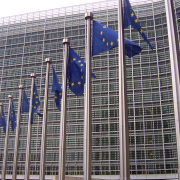Agriculture is stepping up in the fight against climate change with help from the private sector. A new reportfrom the International Fund for Agricultural Development (IFAD) shows that investing in climate-resilient agriculture can attract sizeable contributions from the private sector.
The Business Advantage – Mobilizing Private Sector Led Climate Actions in Agriculture, a study of IFAD investments through its Adaptation for Smallholder Agriculture Programme (ASAP), shows that for every dollar of ASAP investment, between US$0.77–2.85 was leveraged in private-sector investments – helping countries reach climate finance commitments scheduled under the Paris climate agreement.
“IFAD works with the private sector on adaptation investments that are both financially profitable and socially and environmentally sound,” said IFAD President Gilbert F. Houngbo. “Many of these adaptation investments were deemed high risk by the private sector, but ASAP operates as a de-risking or insurance instrument to encourage business to invest in them.”
Previously, in Bhutan the private sector was wary of investing in small scale dairy farms due to product quality concerns. With IFAD investment leading the way, however, local farmers improved the quality of their milk and then partnered with a local dairy company to create an assured market. In the first year, the investment ($77,429) was close to 2.5 times the amount invested by IFAD. The company’s supply of milk was greatly improved while farmers reported their income from dairy sales increased by 54 to 170 per cent.
In Vietnam, a grant scheme was established by IFAD’s partners to finance company business plans that helped to develop climate resilience among smallholder farmers. With this approach, the development of the companies was bound to the development of the rural communities.
With upfront payments and revolving funds paid to farmers by the project, farmers were encouraged to invest in good cropping practices and select high-quality seeds, which eventually ensured high-quality supply of agricultural products to business. The total investment was close to $1.5 million, of which IFAD contributed $0.4 million and the remaining $1.1 million was from private companies.
“This report is ground-breaking work that links the private sector into climate change adaptation by finding opportunities for partnership that benefit both businesses and smallholder farmers,” said Bruce Campbell, Program Director of the CGIAR Research Program on Climate Change, Agriculture and Food Security, which led the research for the report. “Public-private partnerships are an essential ingredient of the agricultural transformation we need to address climate change.”
According to Margarita Astralaga, Director of IFAD’s Environment, Climate, Gender and Social Inclusion Division, the private sector is becoming an increasingly important partner in IFAD’s work. “While the fundamental goals underpinning IFAD’s purpose have remained constant over the years, the way by which IFAD is achieving these goals has undergone changes, with business taking a more central role in the agenda,” she said. “IFAD wants to include producers in these new partnerships with business. Valuable lessons are being drawn from IFAD’s experience in partnering with the private sector, via mechanisms such as public-private-producer partnerships (4Ps), where business is increasingly recognized as a main force in development.”
Source: www.agropages.com

